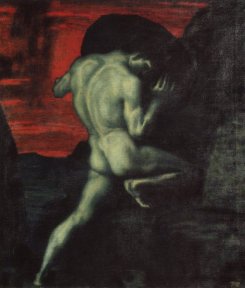“Hope is a dangerous thing” -Morgan Freeman, Shawshank Redemption
I know how some of you may feel about an off-the-cuff synopsis of Absurdism from someone who has never finished a book on the subject, but whatever; it’s relatively simple to cram this topic into a nutshell. In order for laymen to effectively digest this ubiquitously revolting outlook, they must begin where Absurdism did; Existentialism. Kierkegaard, Kafka, Dostoyevsky, and Sartre all describe absurdity, with only one insidious flaw; their attempt to provide some sort of resolution.
Albert Camus ultimately freed Absurdism from its Existentialist roots by asserting that the only actual “resolution” is basically to avoid suicide. In his essay, The Myth of Sisyphus, Camus begins with what he considers the most vital philosophical question; if one recognizes life as ultimately meaningless, is it reasonable for them to commit suicide? Camus stated that there are three choices; allow life’s lack of order, unity and clarity to lead them toward a form of acceptance which ends in surrender (suicide), deny life’s lack of meaning by escaping with some form of reconciliation (Religion), or radically accept the seemingly morose confines of the common losing-struggle, sparking the passion and freedom to stick around and revolt against it (Absurd ism).
Camus barely breaks a mental sweat in arguing that the universe is ultimately incompatible with what our minds demand. He rather affirms that this is universally recognizable, declaring a naked form of acceptance and integrity as the only path to freedom, unlocking a door to a crisply authentic quality of life that enhances every waking moment. As a hero of this concept, Camus chose Sisyphus, a king sentenced by the Greek gods to spend eternity repeatedly pushing the same boulder up the same hill. Camus asserts that despite the tormenting futility of performing a repetitively avail-less task, “the struggle itself toward the heights is enough to fill a man’s heart. One must imagine Sisyphus happy.”

Discussion
No comments yet.